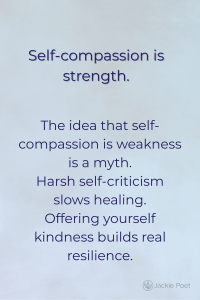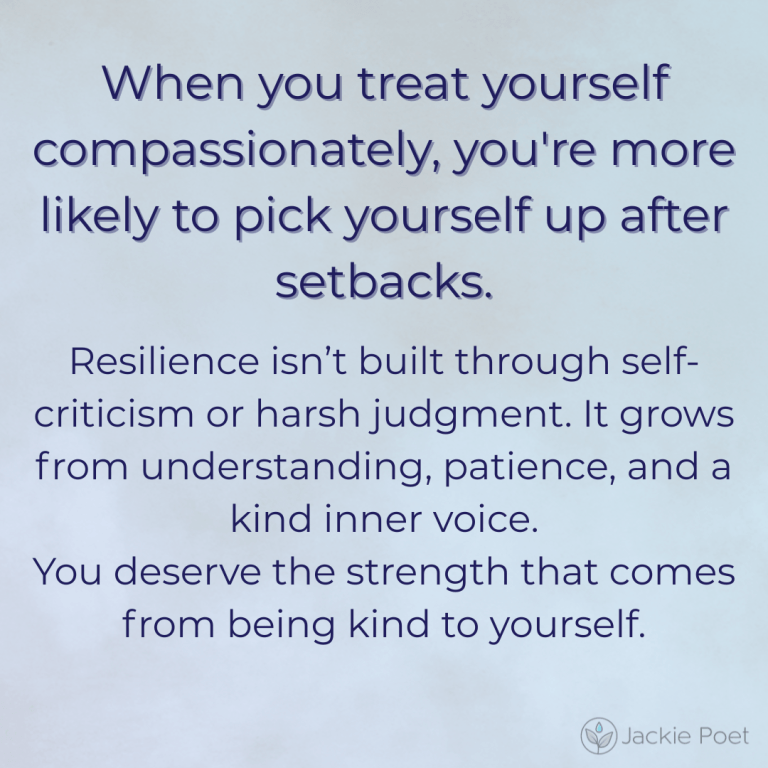If you were taught that self-compassion equals weakness, leads to laziness, or that you need to be tough on yourself to stay motivated, you learned harmful myths that need to be challenged.
Many trauma survivors learned that self-compassion equals weakness and leads to a lack of motivation. These were harmful myths designed to maintain control over you. All types of child abuse are basically about control – it was easier to control you if you lacked self-esteem and self-belief.
Research shows the opposite is true: the more we criticize and tell ourselves off, the less likely we are to believe in ourselves and our abilities. Self-criticism undermines recovery rather than motivating positive change.
When we constantly punish ourselves mentally, we create shame and self-doubt rather than motivation. This makes it harder to take healthy risks or recover from setbacks. Self-criticism doesn’t build character – it builds fear and self-doubt.
Self-compassion actually increases resilience and motivation. Treating yourself with kindness provides the emotional safety needed for growth and positive change. When you feel safe and supported (even by yourself), you’re more likely to try new things, take healthy risks, and persist through difficulties.
Self-compassion involves understanding and acknowledging your own pain with a desire to alleviate it, much like you would do for a good friend. It doesn’t mean avoiding responsibility or making excuses – it’s about treating yourself kindly while still working toward your goals.
You were taught lies about self-compassion to keep you controllable and compliant. The truth is that you deserve kindness from yourself, not constant criticism. Self-compassion isn’t weakness – it’s necessary for healing from past traumas and building resilience. You can unlearn these negative lessons from your past and replace them with self-compassion and kindness, creating a healthier relationship with yourself and others.
Continue your healing journey with Toxic by Jackie Poet a compassionate guide to understanding and overcoming the lasting effects of childhood trauma.







